Rustic Mod 1.12.2, 1.11.2 (Medieval-Themed Features)
Rustic Mod 1.12.2, 1.11.2 adds medieval-themed content to the game. It focuses on decoration, exploration and agriculture for now, but it branches out a bit as well.
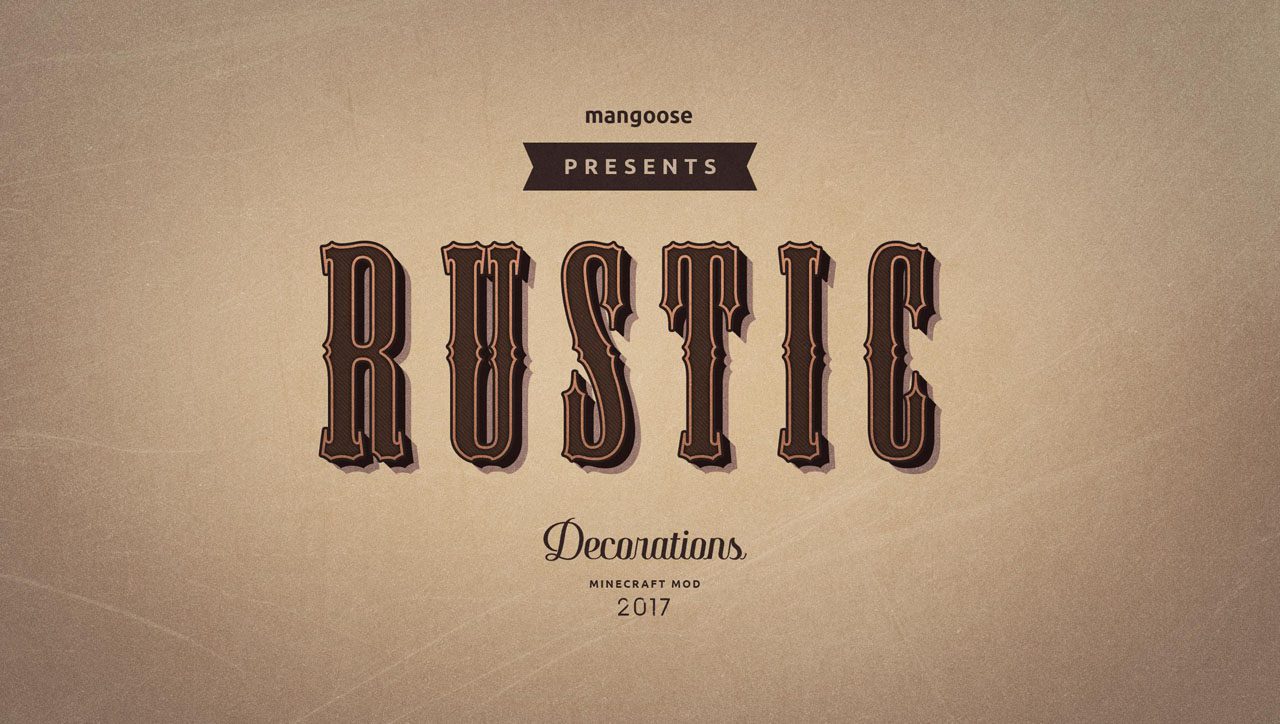
Features:
Materials
- Tallow
- Obtained by smelting rotten flesh.
- Can be used to craft candles.
- Can be disabled in the mod’s config file.
- Tiny Pile of Iron Dust
- Obtained by evaporating ironberry juice.
- Can be smelted into an iron nugget.

Slate
Slate is a stone variant that spawns commonly throughout the overworld. It can be crafted into a variety of decorative building blocks. The spawn frequency can be modified through the mod’s config file.
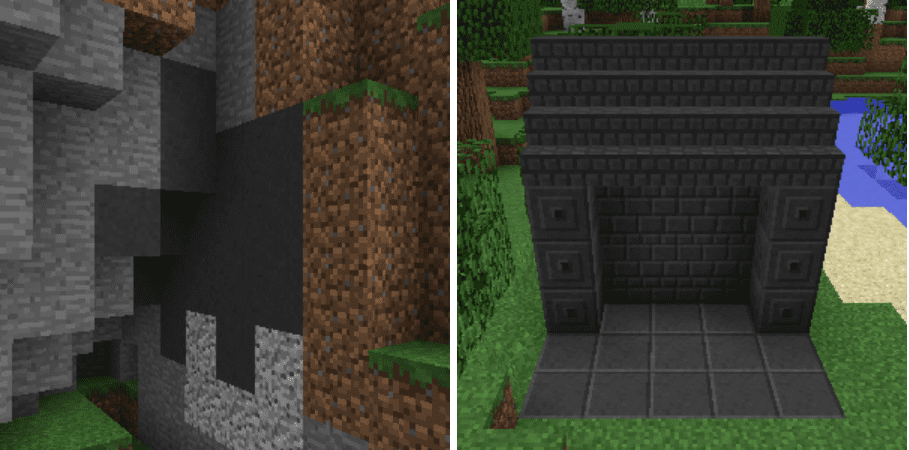
Stone Pillars
Stone pillars can be crafted from any of the four vanilla stone types, as well as slate. They can be placed along any of the three axes.
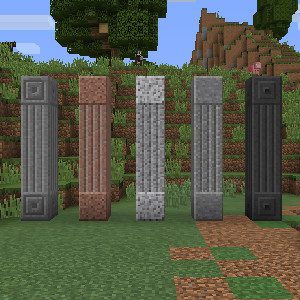
Candles
Candles are decorative light sources made from iron, string, and either beeswax or tallow. They can be placed on the sides or top of solid blocks, just like torches.
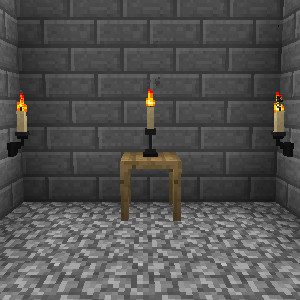
Chain
Chain can be crafted with iron, and can be used as a replacement for ladders, or for decoration. Chains can be placed horizontally, off of solid blocks, or vertically, hanging from a solid block or more chain. Right-clicking a chain block with chain in your hand will attempt to place more chain blocks underneath the chain block you clicked. This allows you to easily create long lines of vertical chain.
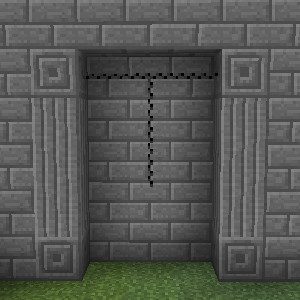
Rope
Rope can be crafted with string, and can be used as a replacement for ladders, for decoration, or for growing grapes. Ropes can be placed horizontally, off of solid blocks, or vertically, hanging from a solid block or more rope. Right-clicking a rope block with rope in your hand will attempt to place more rope underneath the rope block you clicked. This allows you to easily create long lines of vertical rope. Ropes can also be tied to crop stakes. Tied crop stakes count as solid blocks for supporting rope.
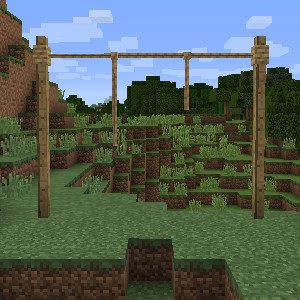
Chandelier Ring
Chandelier Rings can be crafted with iron and chain. They are most useful for decoration, as torches and candles can be placed on the sides of the block. For the best looking chandeliers, it is suggested that you hang the chandelier ring from a chain or rope.
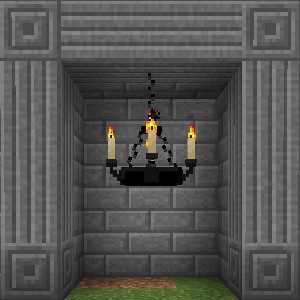
Clay Walls
Clay Walls can be crafted with clay and wood. Their sole purpose is decoration. There are three different clay wall blocks, each with a different support beam pattern.
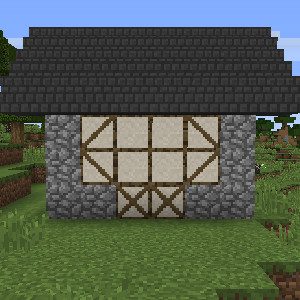
Painted Wood
Painted Wood can be crafted with any eight wood planks surrounding any color of dye. They can be used for decoration, and can be made in all 16 dye colors.
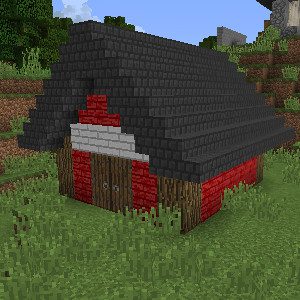
Iron Lattice
Iron Lattice can be crafted from iron. Their sole purpose is decoration. They connect to adjacent lattice blocks and solid blocks. Right-clicking a lattice block with leaves in your hand will place leaves onto the lattice.
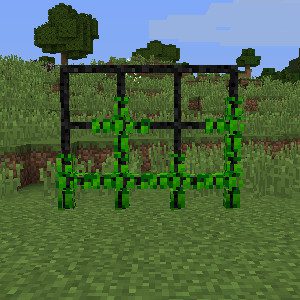
Lanterns
Lanterns can be crafted with iron and coal, and they emit light. They can be placed on the sides, top, or bottom of any block.
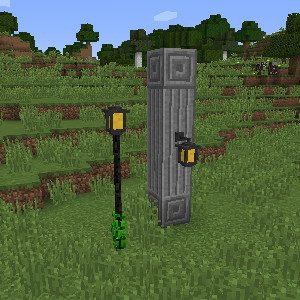
Gargoyles
Gargoyles are statues of monstrous creatures, which can crafted with stone, stone slabs, and stone pressure plates. Their sole purpose is decoration. They can be oriented in an of the four cardinal directions.
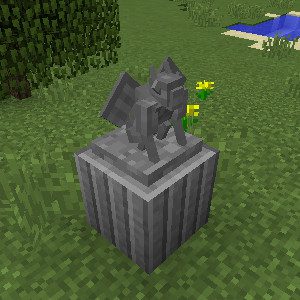
Tables
Tables can be crafted with sticks wooden planks. The planks used in crafting affect the type of table you get. Tables can be made with any vanilla wood types, as well as olive wood and ironwood. Their sole purpose is decoration. Tables connect to adjacent tables so that only the corners of connected tables have legs.
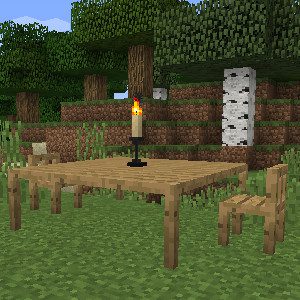
Chairs
Chairs can be crafted with sticks wooden planks. The planks used in crafting affect the type of chair you get. Chairs can be made with any vanilla wood types, as well as olive wood and ironwood. Their sole purpose is decoration. Right-clicking a chair will allow you to sit in it, and sneaking will allow you to dismount.
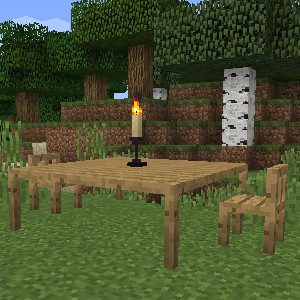
Cabinets
Cabinets can be made with wood planks and trapdoors. They can be oriented in any of the four cardinal directions, and can also be mirrored, allowing for many different placement configurations. Cabinets will connect to cabinets below them, as long as they are facing the same direction and have the same mirror state. Cabinets hold as many items as a chest (27), and double cabinets hold as many items as a double chest (54). Cabinets can only be opened from their front face. They are also fully loot table compatible.
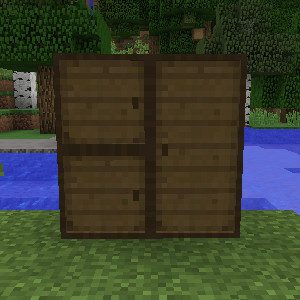
Pots
Pots can be made with hardened clay. They can hold as many items as a chest (27). Upon placement, pots receive a random texture. This texture persists through saves, and other players in multiplayer will see the same texture as you do. There are currently 6 different variants available.
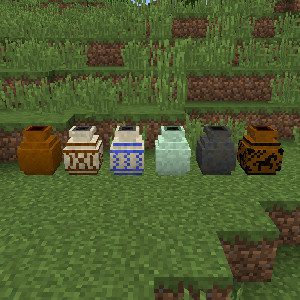
Barrels
Barrels can be crafted with any wood planks, any wood slabs, and iron. They hold as many items as a chest (27).
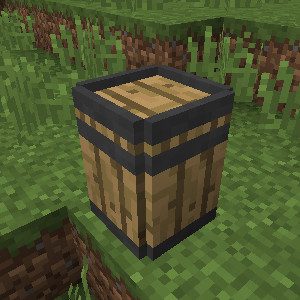
Liquid Barrels
Liquid Barrels can be crafted with any wood planks, any wood slabs, and iron. They hold up to 16 buckets of liquid, and will retain their contents when destroyed. Liquid Barrels can only hold liquids that are not gaseous, and are below a certain temperature. If left outside in the rain, liquid barrels will slowly collect water, but only if they are empty or contain water already.
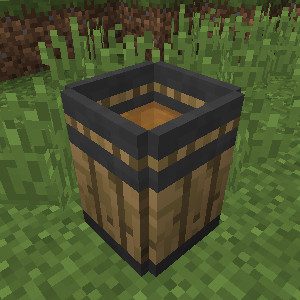
Armor HUD
When Rustic is installed, the vanilla armor HUD is modified. It is allowed to extend into a second row if necessary (further rows will never be used unless you are using mods that extend vanilla’s limit on the player’s armor stat, which is 40). Additionally, when the player’s armor toughness stat is greater than zero, an extra HUD element will appear above the food meter to display the exact armor toughness stat. Each Half shield is equivalent to one unit of toughness. The toughness bar will only ever take up a maximum of two rows (further rows are not possible unless you are using mods that extend vanilla’s limit on armor toughness, which is 30).
Both the extra armor rows and the armor toughness bar can be individually disabled in the mod’s config file.

Crushing Tub
Crushing Tubs can be made with any wooden planks, any wooden slabs, and iron. They are used to crush solids into liquids. They can hold up to one stack of items, and up to eight buckets of liquid. All recipes should be visible in JEI.
Usage:
- To use a crushing tub, place it in the world. Then, insert items into it by right-clicking the block with items in hand. Remove items by right-clicking with an empty hand. Once a tub has items inside, if the items are a valid recipe, jumping on the tub will crush the items into their corresponding fluid, one at a time. If the tub is too full of fluid, crushing will not occur. You will be alerted when crushing is successful with a squishing sound, as well as the appearance of fluid in the tub, and the disappearance of items in the tub. If necessary, you can void all fluid contained in the tub by shift-right-clicking the block with an empty hand.
- Some crushing tub recipes produce both fluid and items. If a recipe has an item byproduct, then the item will appear as an entity in the world above the tub when crushing occurs.
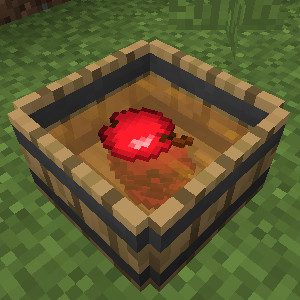
Evaporating Basin
Evaporating Basins can be made with hardened clay. They are used to extract items from fluids through evaporation. They can hold up to one stack of items, and up to six buckets of liquid. All recipes should be visible in JEI.
Usage:
- To use an evaporation basin, place it in the world. Then, insert fluid into it by right-clicking the block with a filled bucket. Remove fluid by right-clicking the block with an empty bucket, or by shift-right-clicking the basin with an empty hand. Crafting will occur automatically over time. Fluid in the basin evaporates at a rate of 1mb/tick, or 0.02 buckets/second. Once enough fluid has evaporated to form a valid recipe, the output will appear in the basin, assuming there is space in the basin’s inventory. Items can be extracted by right-clicking the basin with an empty hand.
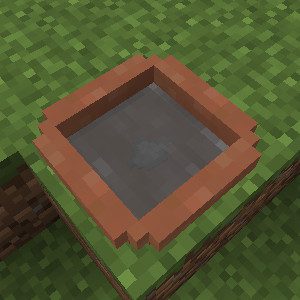
Bees
Bees can be found in beehives throughout the world, and can be used to produce honeycomb. Honeycomb can be smelted into beeswax, used in alchemy to make Elixers of Regeneration, or crushed into honey, which can be drank or brewed into mead.
Beehives: Beehives generate under leaves in the overworld. When broken, they drop 0-4 honeycomb and 1-2 bees. Their frequency can be changed in the mod’s config file.
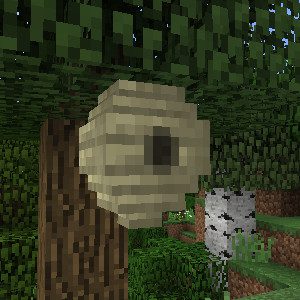
Apiaries: Apiaries are wooden constructions that house bees. Their inventories have two slots; one for bees, and another for honeycomb.
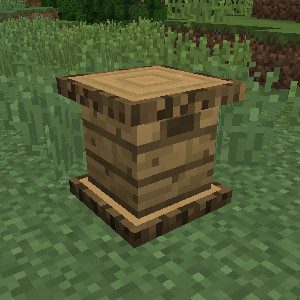
When one or more bees are placed in the top slot of the apiary, the bees will do three things:
- Reproduce
- Produce honeycomb
- Speed up nearby crop growth
By default, bees reproduce at half the rate at which they produce honeycomb, and the rate at which they do both of those things depends on the number of bees in the apiary. More bees means faster bee reproduction and faster honeycomb production.
The crop growth boost’s effect is also reliant on the number of bees in the apiary. The range of the effect is four blocks in each direction horizontally, as well as 1 block in each direction vertically.
The rates at which bees reproduce, produce honeycomb, and boost crop growth can all be changed separately in the mod’s config file.

Fertile Soil
Fertile Soil can be crafted with dirt and bone meal. It acts like vanilla farmland, but it doesn’t require water to stay hydrated, it can’t be trampled, and sugar cane can grow on it without an adjacent water block.
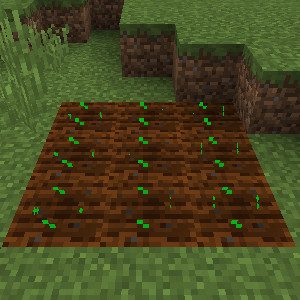
Crop Stakes
Crop Stakes can be made with any wooden planks. They are used in the cultivation of chili peppers and tomatoes. Ropes can also be tied to crop stakes.
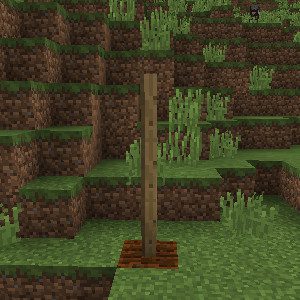
Olives
Olives are the fruit of olive trees. They can be used to make olive oil.
- Olive Trees: Olive Trees generate naturally in the overworld in forests, plains, and mountains. They do not generate in places where it can snow. The logs can be crafted into olive wood planks, which can be used to make olive wood variants of stairs, slabs, fences, fence gates, tables, and chairs. Olive leaves drop olive saplings and olives.
- Olives: Olives can be eaten, but they are not very nutritious, and they inflict the player with nausea. It is better to crush them into Olive Oil.
- Olive Oil: Olive Oil can be drank, if stored in a bottle, but it inflicts the player with nausea. It is better to craft olive oil bottles with any food item, from vanilla or mods, to give the food item the “Olive Oiled” trait. Foods with this trait fill two extra hunger points (1 shank) when eaten, and they are also more saturating. Foods with the “Olive Oiled” trait are stackable, but not with un-oiled foods.
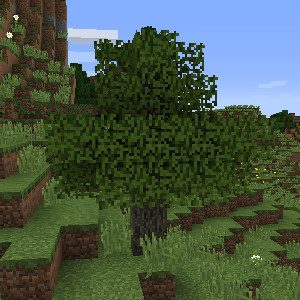
Ironberries
Ironberries are the fruit of ironwood trees. They can be used in alchemy, or processed into iron.
- Ironwood Trees: Ironwood Trees generate naturally in the overworld in forests, plains, mountains, swamps, and jungles. They do not generate in dry biomes. The logs can be crafted into ironwood planks, which can be used to make ironwood variants of stairs, slabs, fences, fence gates, tables, and chairs. Ironwood leaves drop ironwood saplings and ironberries.
- Ironberries: Ironberries can be eaten, but they are not very nutricious, and they inflict paralysis onto the player. It is better to crush them into ironberry juice, or use them in alchemy to make Elixers of Ironskin.
- Ironberry Juice: Ironberry Juice can be drank, if stored in a bottle, but it inflicts paralysis onto the player. It is better to evaporate the juice to get tiny piles of iron dust, or brew the juice into iron wine.
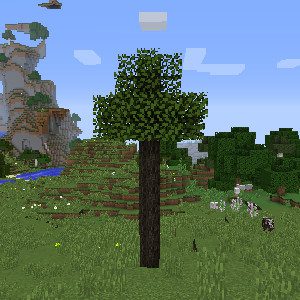
Tomatoes
Tomatoes are the fruit of tomato plants, which can be grown on crop stakes. Tomato seeds can be found by breaking tall grass, and can be planted by right-clicking on a crop stake with the seeds in hand. The seeds can only be planted on crop stakes that are above farmland or fertile soil. Tomato seeds will then grow into vines, which will eventually grow tomatoes. Tomato vines can grow upwards onto crop stakes, but only to a height of three blocks tall. Tomatoes can be harvested from fully grown tomato vines by right-clicking the vine blocks, or by breaking the vine. It is better not to break the vine, however, because broken vines will have to grow back before producing more tomatoes. Tomatoes can be eaten, but they can also be thrown like snowballs. Living entities hit with thrown tomatoes will be inflicted with the “Shame” debuff, which spawns tomato particles around the affected entity.
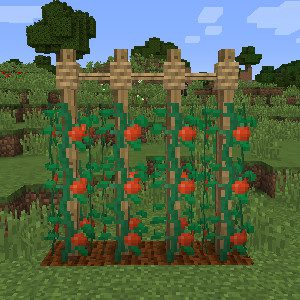
Chili Peppers
Chili Peppers are the fruit of chili pepper plants, which can be grown on crop stakes. Chili Pepper seeds can be found by breaking tall grass, and can be planted by right-clicking on a crop stake with the seeds in hand. The seeds can only be planted on crop stakes that are above farmland or fertile soil. When mature, chili pepper plants produce chili peppers. When the plant has chili peppers, it can also grow upward onto crop stakes, but only up to a height of 2 blocks tall. Chili peppers can be harvested from mature plants by right-clicking or breaking the plant. It is better not to break the plant, as broken plants will need to regrow before bearing more chili peppers. Chili peppers can be eaten, but will deal a half heart of fire damage. They also give a short buff to the player’s speed. Chili peppers can also be used in alchemy to make Elixers of Blazing Trail.
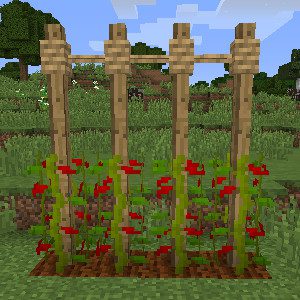
Apple Trees
Apple Trees can be grown from apple saplings, which can be grown from apple seeds, which can be obtained by crushing apples. Apple trees are made of oak logs and apple leaves. Apple leaves slowly grow apples inside of themselves if they are exposed to air on the bottom or any sides on the horizontal axis. Fully grown apples can be harvested from apple leaves by either right-clicking or breaking the leaf. It is better not to break leaves, as leaves will not regrow. Apple leaves drop apple saplings, as well as apples, so long as they contain fully grown apples when destroyed.
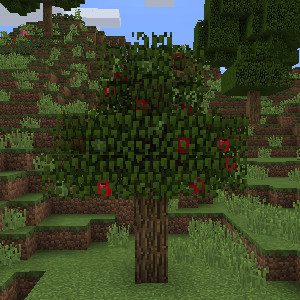
Grapes
Grapes are the fruit of grape vines. They can be eaten, or made into grape juice.
- Grape Vines: Grape Vines are grown with grape seeds (which are obtained by breaking vanilla vines) on farmland or fertile soil. Grape seeds grow into grape stems, which, if they have horizontal ropes above them, grow onto the ropes, forming vines. The vines then spread one block outward along the axis of the rope, so long as there is rope to grow onto. The outer vines will grow grapes if the block beneath them is air. Grapes can be harvested from grape vines by right-clicking or breaking fully grown vines. It is better not to break the vine, as broken vines must regrow before producing more grapes.
- Grapes: Grapes can be eaten, and they take half as long to eat as normal foods. Grapes can also be crushed into Grape Juice.
- Grape Juice: Bottled Grape Juice can be drank, or brewed into wine.
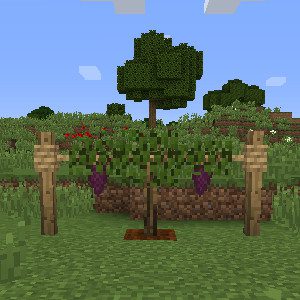
Wildberries
Wildberries are the fruit of wildberry bushes. They can be eaten, or used to make wildberry juice.
- Wildberry bushes: Wildberry bushes spawn naturally throughout the overworld in many climates. They do not spawn in sandy biomes, savannas, mesas, cold biomes, snowy biomes, mushroom biomes, dead biomes, or wasteland biomes. The spawn frequency of wildberry bushes can be adjusted in the mod’s config file. Wildberries can be harvested from fully grown bushes by simply right-clicking the bush. Breaking the bush also works, but then the bush must be replaced. Wildberry bushes naturally multiply under certain condition. They must be fully grown (have berries), and they must have fewer than two wildberry bushes within the eight surrounding blocks.
- Wildberries: Wildberries can be eaten, but they are not very filling. However, they can be eaten faster than normal foods, and they grow very quickly. Wildberries can also be crushed into wildberry juice.
- Wildberry Juice: Bottled Wildberry juice can be drank, filling a small amount of hunger and saturation with a chance of providing a regeneration buff, and a smaller chance of inflicting the poison debuff. Wildberry juice can also be brewed into wildberry wine.
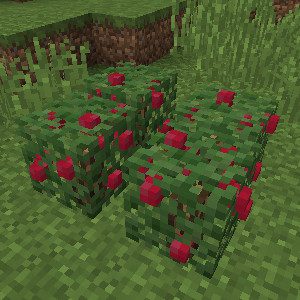
Herbs
Herbs spawn naturally throughout the overworld and nether in a variety of different climates. Some Herbs are edible, and all herbs can be used in alchemy. The spawn frequency of herbs can be adjusted in the mod’s config file. Once found, herbs can be planted and regrown.
Herb Types:
- Aloe Vera
- Spawns in sandy biomes, savanna biomes, and mesa biomes
- Blood Orchid
- Spawns in jungle biomes
- Chamomile
- Spawns in plains biomes, forest biomes, and swamp biomes
- Cloudsbluff
- Spawns in mountain biomes
- Edible, inflicts levitation
- Cohosh
- Spawns in forest biomes
- Core Root
- Spawns in caves
- Edible
- Deathstalk Mushroom
- Spawns in the nether
- Ginseng
- Spawns in plains biomes and forest biomes
- Edible
- Horsetail
- Spawns in jungle biomes, swamp biomes, plains biomes, and forest biomes
- Marsh Mallow
- Spawns in jungle biomes and swamp biomes
- Edible
- Mooncap Mushroom
- Spawns in jungle biomes and caves
- Wind Thistle
- Spawns in mountain biomes and plains biomes

Alchemy
Alchemy is the process of brewing elixirs in condensers.
Basic Alchemy: Basic Alchemy is performed in a condenser. In order to operate, a condenser must have retorts on either side, both facing towards the condenser, so that the retorts’ tubes are attached to the condenser. Condensers can be made with bricks, white stained clay, and a bucket. Retorts can be made with bricks, iron, and a bucket.
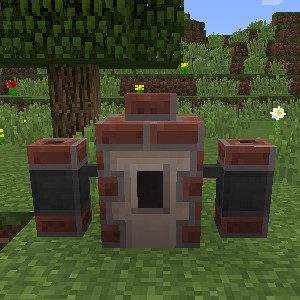
The tank on the right side of the GUI is for water. The tank can be filled or emptied by right-clicking the block with buckets in hand, or by shift-right-clicking the block with an empty hand to void all contained fluid. The slot on the bottom middle of the GUI is for any fuel item that works in a furnace. The slot on the top right of the GUI is for glass bottles. The large slot below that is the output slot, where finished elixers appear. The two slots on the left of the GUI are for ingredients. Brewing is done by putting valid ingredients into the ingredient slots, and supplying the condenser with enough fuel, water, and bottles to brew.
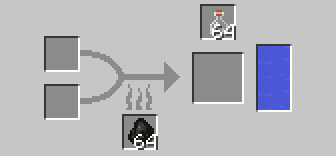
Advanced Alchemy: Advanced Alchemy is performed in an advanced condenser. In order to operate, an advanced condenser must have advanced retorts on all three sides other than the front, all facing towards the advanced condenser, so that the retorts’ tubes are attached to the condenser. Condensers can be made with nether bricks, an iron block, and a bucket. Retorts can be made with nether bricks, iron, and a bucket.
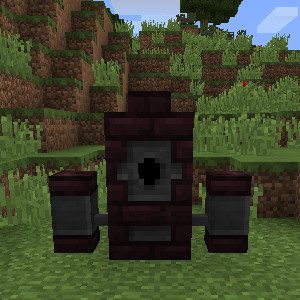
The tank on the right side of the GUI is for water. The tank can be filled or emptied by right-clicking the block with buckets in hand, or by shift-right-clicking the block with an empty hand to void all contained fluid. The slot on the bottom middle of the GUI is for any fuel item that works in a furnace. The slot on the top right of the GUI is for glass bottles. The large slot below that is the output slot, where finished elixers appear. The slot on the top middle of the GUI is for modifiers. The three slots on the left of the GUI are for ingredients. Brewing is done by putting valid ingredients into the ingredient slots, optionally putting a valid modifier into the modifier slot, and supplying the advanced condenser with enough fuel, water, and bottles to brew.
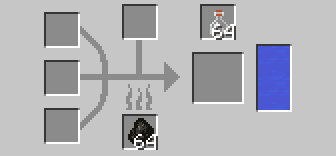
Elixirs: Elixirs are like potions, but they are stackable up to 16. They also cannot currently be turned into splash potions, lingering potions, or tipped arrows.
Types:
- Elixir of Instant Health
- Elixir of Regeneration
- Elixir of Wither
- Elixir of Night Vision
- Elixir of Speed
- Elixir of Fire Resistance
- Elixir of Health Boost
- Elixir of Haste
- Elixir of Strength
- Elixir of Iron Skin
- Elixir of Feather
- Elixir of Blazing Trail
Special Effects:
- Iron Skin
- Adds armor and armor toughness
- Gives an iron overlay to the model of affected entities
- Feather
- Slows the falling speed of affected entities
- Negates fall damage
- Blazing Trail
- Affected entities leave a trail of fire behind them
Brewing
Brewing is the process of fermenting liquids. Brewing is done in a brewing barrel.
Brewing Barrel: Brewing Barrels can be made with any wood planks, any wood slabs, and iron. Brewing barrels’ GUIs have three tanks, one for input, one for output, and one for culture booze.
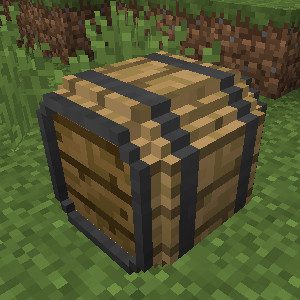
The slot above each tank is for fluid-holding items, like buckets or bottles, which will be used for inputting and outputting through each respective tank. The slot below each tank is where the result from any fluid interactions between the tank and the items in the matching upper slot are returned. The middle tank is the input tank, for unfermented fluids. The right-hand tank is the output tank, where fermented fluids appear. The small tank on the left is for culture booze, which is fermented fluid that can significantly reduce the randomness of the quality of the output.
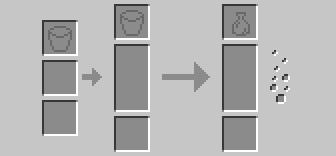
Usage:
To use the brewing barrel, simply fill the input tank with a valid fluid. The amount of fluid you insert doesn’t matter for the recipe, it simply determines how much fluid will the recipe will return. The brewing process will begin automatically once a valid recipe is entered, and will take half of a Minecraft day to complete. The resulting fluid (assuming it is booze, which by default all recipe outputs are) will have been assigned a random quality between 0.05 and 0.75. Low quality booze will inflict annoying or even harmful debuffs when drank. If you get booze with a quality less than 0.5, it is best to simply discard the booze and try again. Once you’ve acquired booze of a sufficient quality, you can insert that booze into the culture booze tank of the barrel before making your next batch of the same type of booze. This will greatly reduce the randomness of the output’s quality, guaranteeing that the output will have a quality no less than the culture booze’s quality – 0.01, and no greater than the culture boozes quality + 0.04. For example, brewing wine from grape juice while wine with a quality of 0.7 is in the culture booze tank will output wine with a quality between 0.69 and 0.74. Culture booze is not consumed in the brewing process.
Booze
Booze can be acquired by brewing various fluids in a brewing barrel. Booze brewed in a brewing barrel should have a quality value between 0 and 1. Drinking booze with a quality less than 0.5 will give terrible results, with the severity of the effects depending on how low the quality was. Drinking booze with a quality of at least 0.5 will give positive results, with the strength of the results dependent on the quality of the booze. Some effects, like absorption from iron wine, may not be very noticeable if you drink booze with a quality just barely above 0.5. In the case of absorption, low qualities increase the number of hearts by values lower than 1, so it can take multiple drinks to get even half a heart. The solution is to just brew better booze.
Inebriation
Drinking any booze has a chance to inebriate you, no matter the quality of the booze. Continuing to drink while inebriated can increase the length and severity of the effect. At levels one and two, inebriation does nothing. At level three, the you will be constantly inflicted with nausea and slowness. At level 4 and above, you will constantly be inflicted with nausea II, slowness II, and blindness. Inebriation cannot be cured by drinking milk. Instead, you can drink water to reduce the length of the effect. Drinking water also has a chance to reduce the severity of the effect.
Types
- Ale
- Very saturating, applies the full stomach effect
- Cider
- Applies the magic resistance effect
- Iron Wine
- Adds absorption hearts to the player with no time limit up to ten extra hearts
- Mead
- Applies the wither ward effect
- Wildberry Wine
- Increases the amplifier of all positive effects, up to level III
- Wine
- Increases the duration of all positive effects up to ten minutes
Special Effects
- Full Stomach
- Reduces hunger damage
- Magic Resistance
- Reduces magic damage
- Wither Ward
- Reduces wither damage
Screenshots:
Pillars
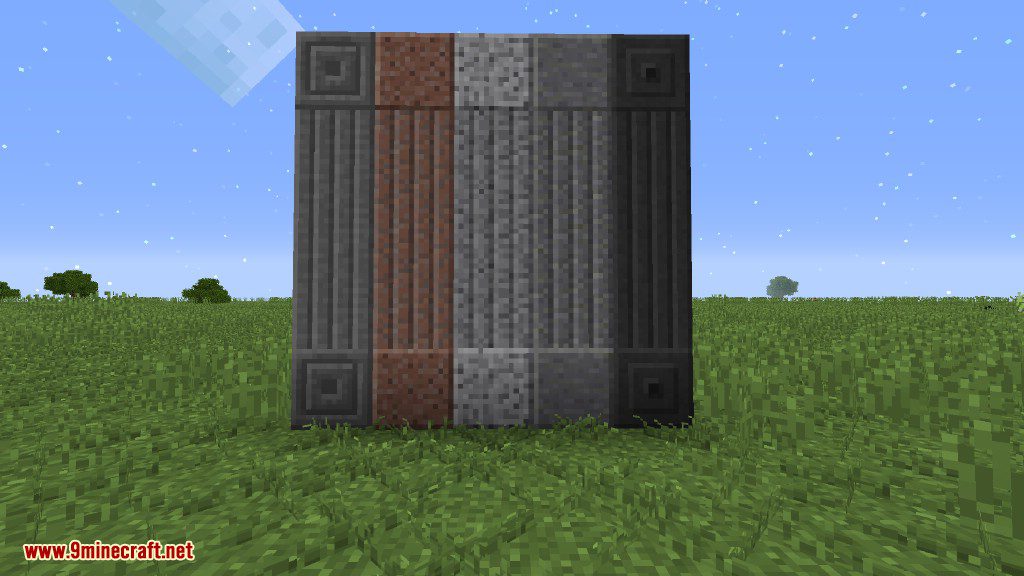
Chandeliers
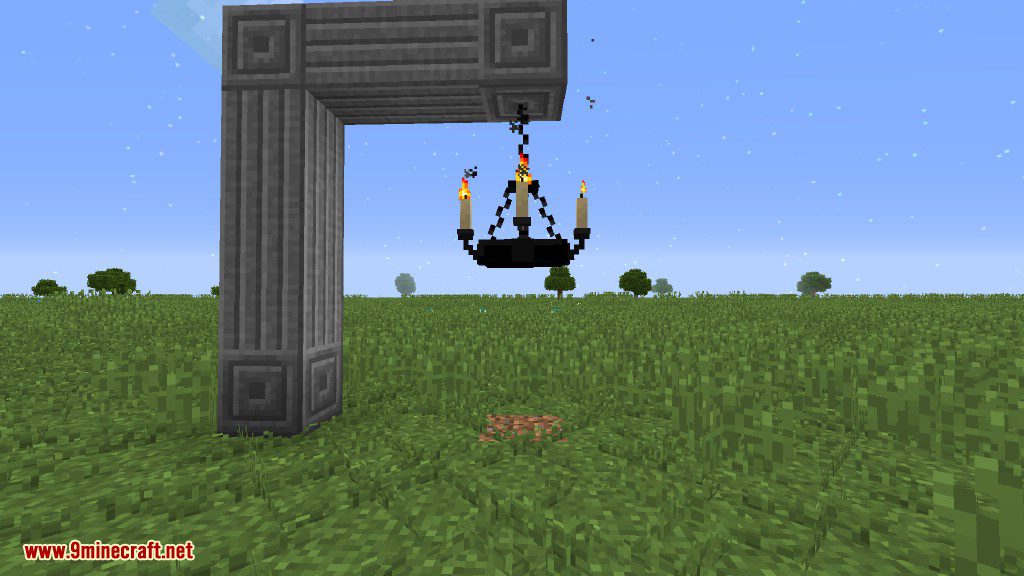
Tables and Chairs and Candles
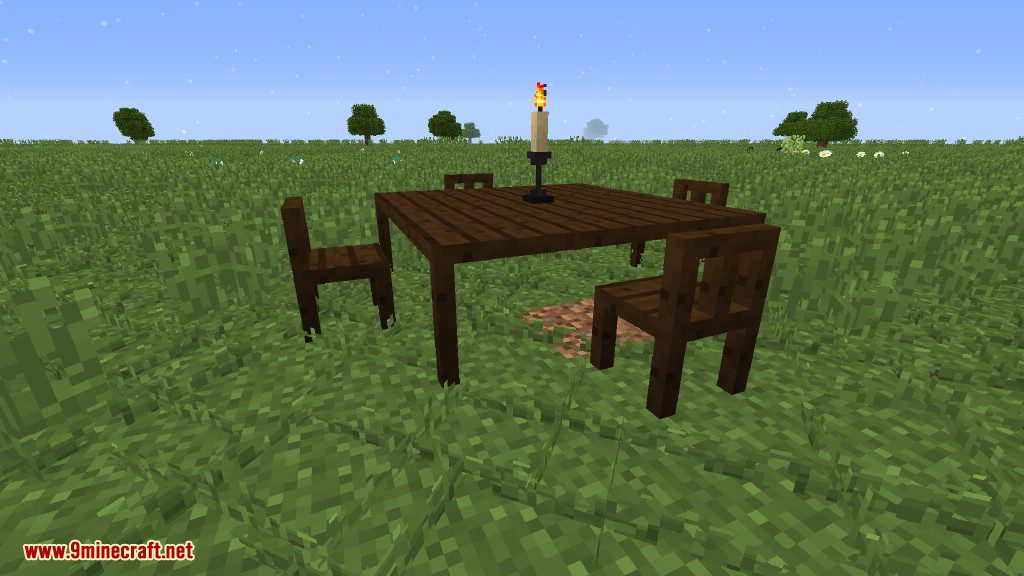
Barrels, Pots, and Slate Blocks
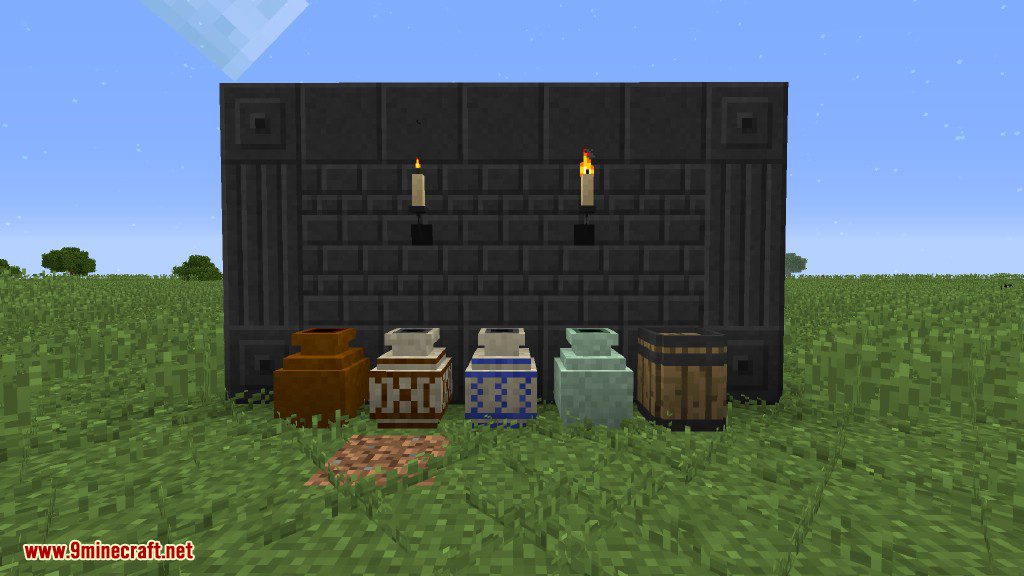
Clay Walls and Slate Roofing
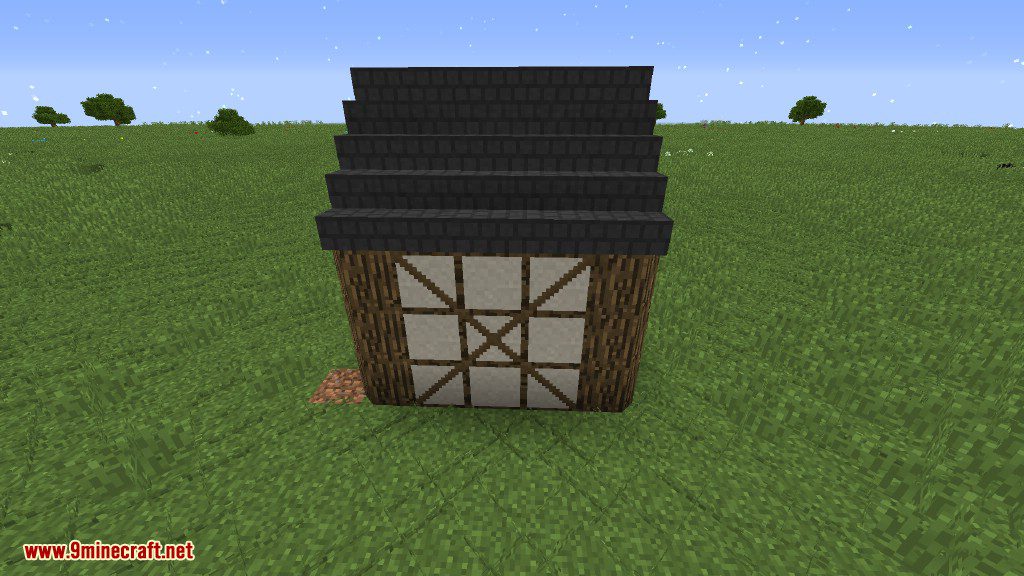
Barn
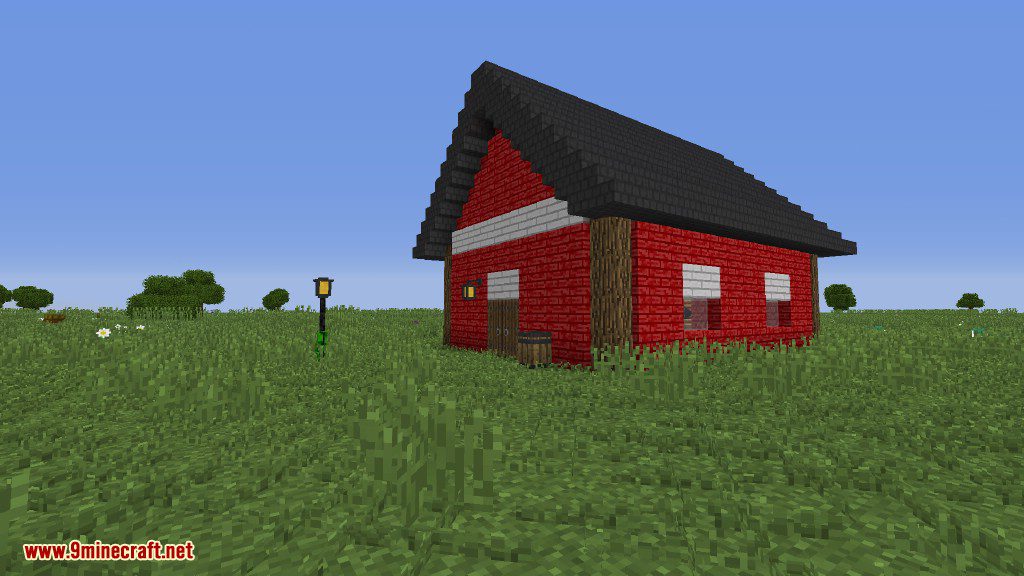
Cabinets
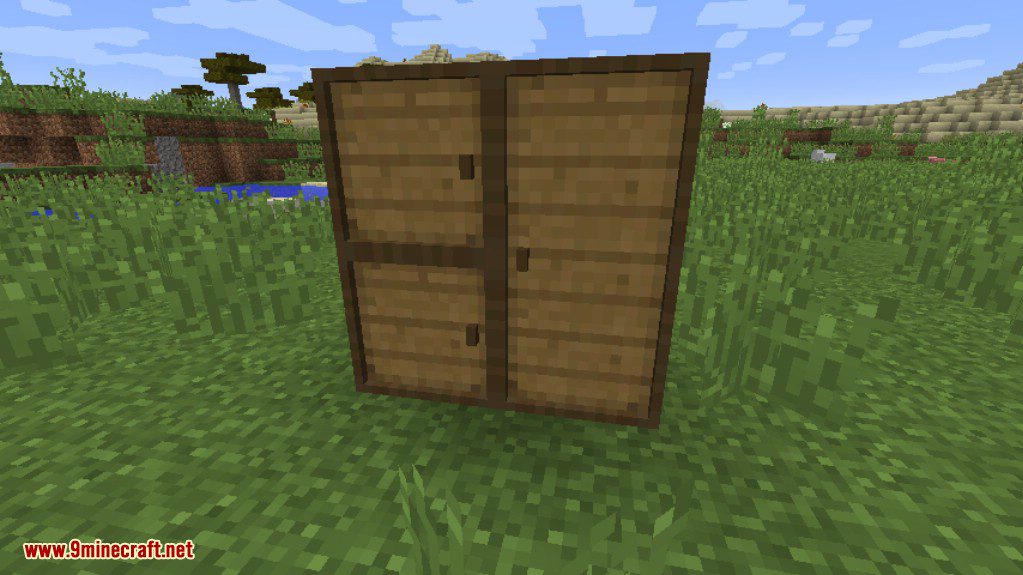
Gargoyle
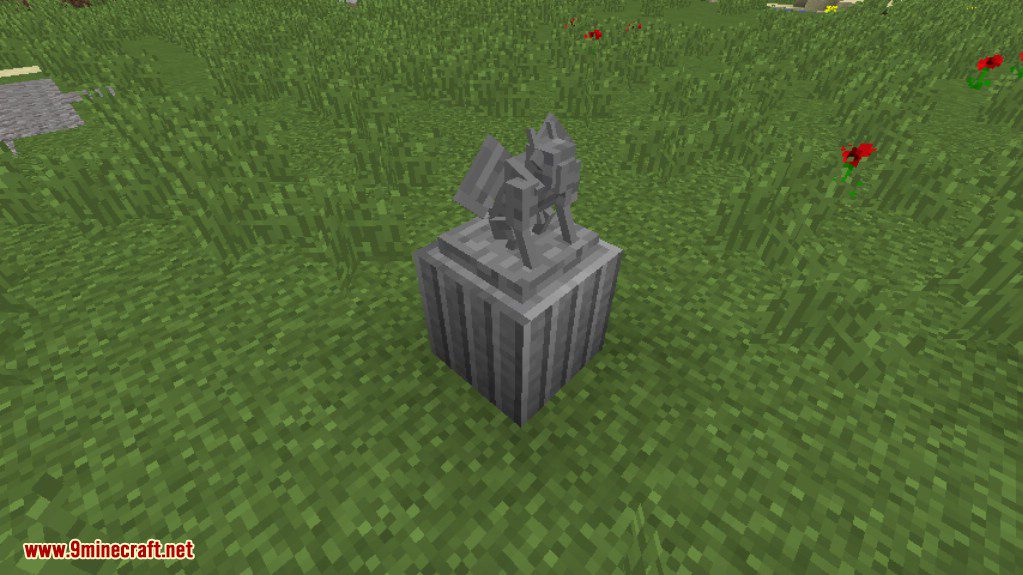
Ironwood Tree & Olive Tree
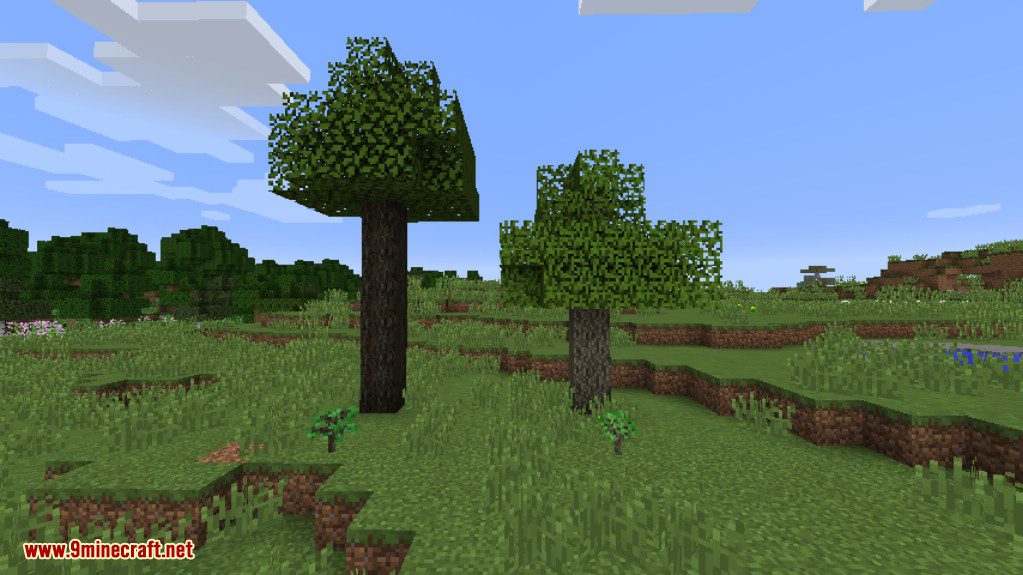
Ironwood and Olive Wood
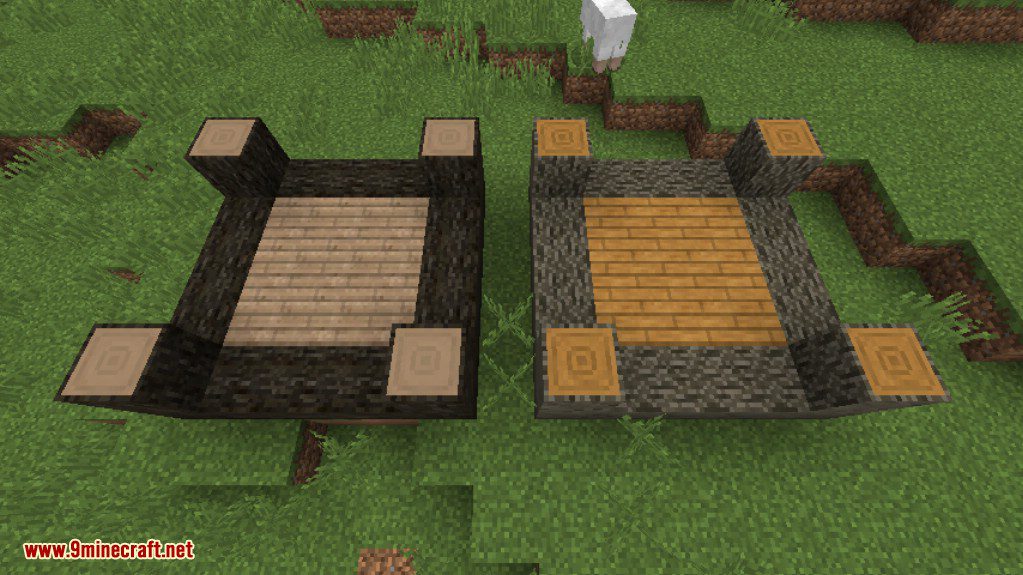
Liquid Barrels
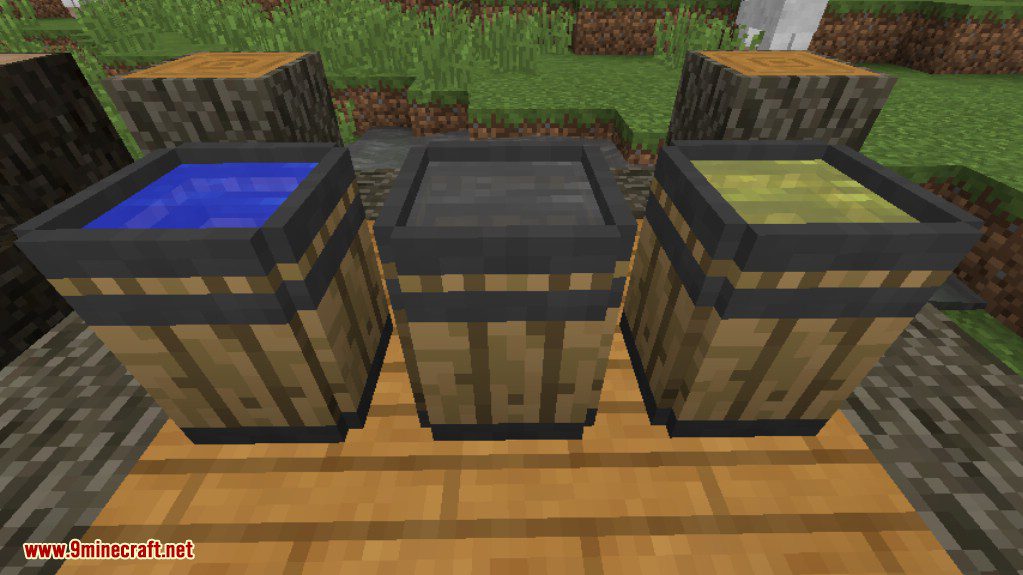
Crushing Tub & Drying Basin
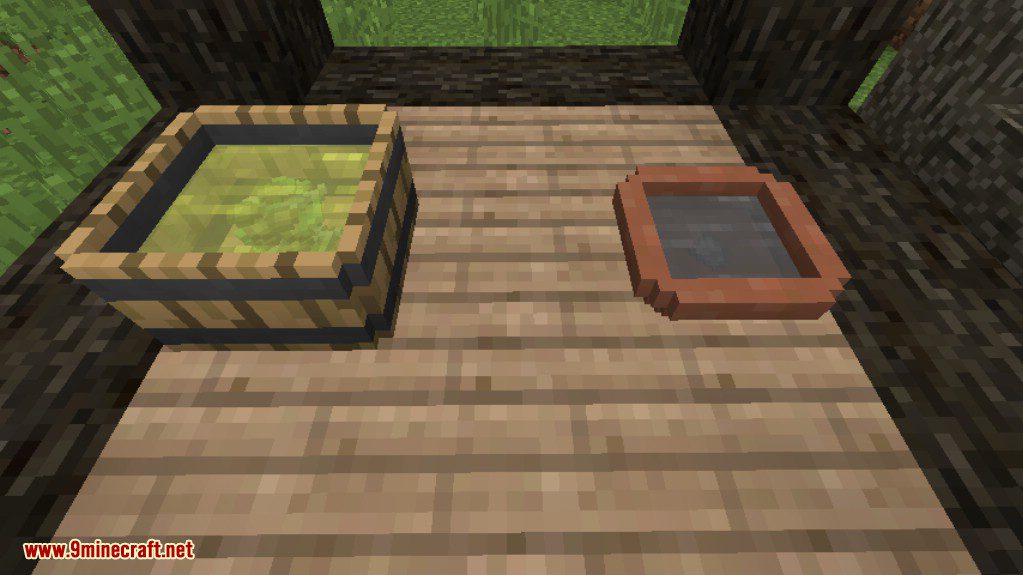
Pig with Ironskin
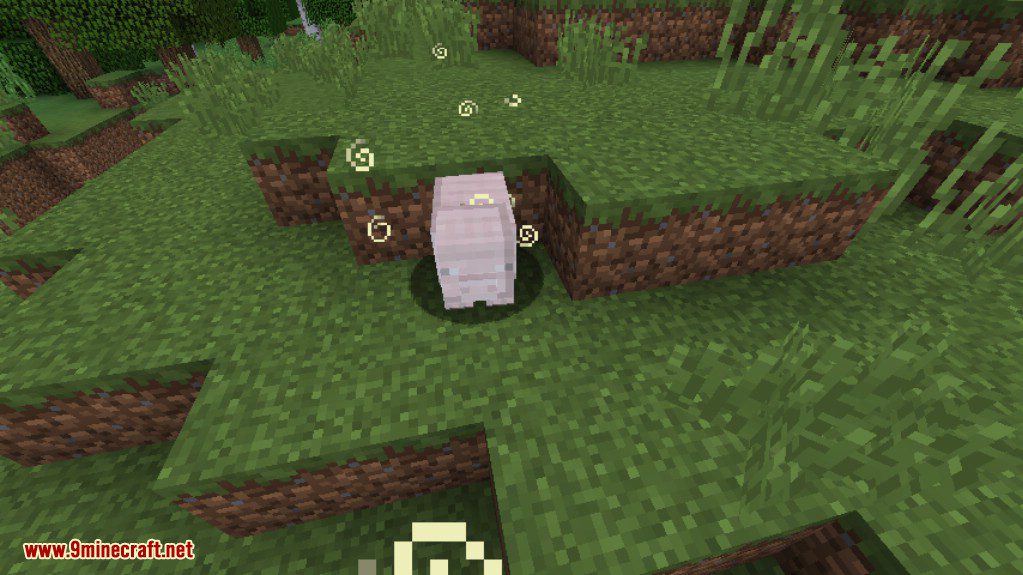
Player with Ironskin
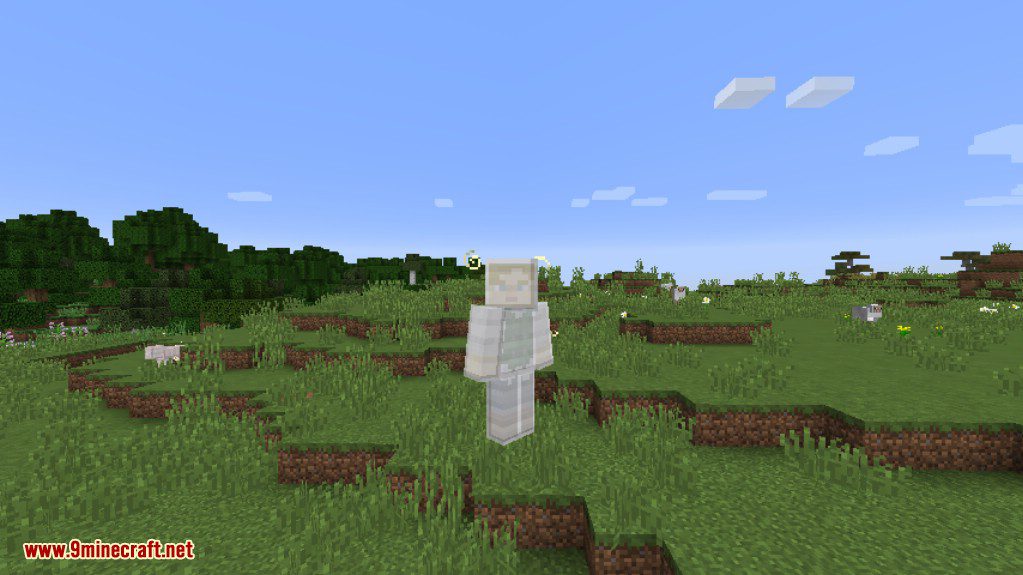
Requires:
How to install:
How To Download & Install Mods with Minecraft Forge
How To Download & Install Fabric Mods
Don’t miss out today’s latest Minecraft Mods
Rustic Mod 1.12.2, 1.11.2 Download Links
For Minecraft 1.10.2
For Minecraft 1.11.2
For Minecraft 1.12
For Minecraft 1.12.1


